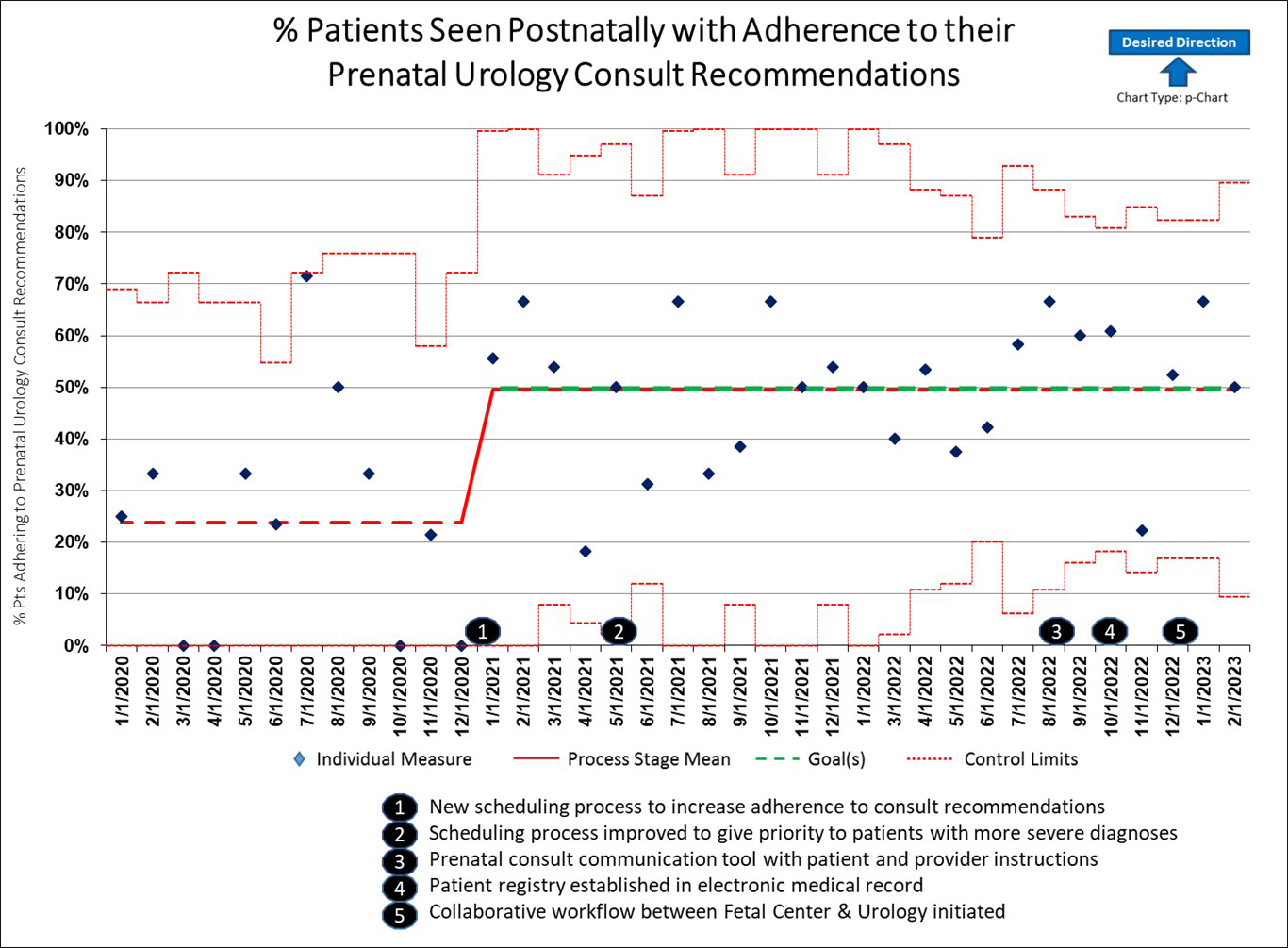Prenatal Urology Consult Recommendations and Postnatal Compliance Evaluation: A Quality Improvement Project
Seth A. Alpert, MD, Kelly E. Kersey, BS, CPHQ, Cody N. Clark, BS, Wendy M. Babbert, FNP-C, Heather L. Terry, FNP-C, Christina B. Ching, MD, Daniel G. DaJusta, MD, Molly E. Fuchs, MD, Daryl J. McLeod, MD, MPH, V. Rama Jayanthi, MD.
Nationwide Children's Hospital, Columbus, OH, USA.
BACKGROUND: Various abnormalities related to the urinary system arise during fetal development: from benign cases of hydronephrosis to life-threatening cases of complex genetic conditions. The most successful approach to reducing the consequences of these conditions is through identification and parental education with specialized prenatal consult. Often when recommendations for postnatal imaging, medication or follow-up are given, these recommendations are not followed as planned. Through a collaborative quality improvement effort between our Urology department and Fetal Center, interventions were developed to increase patient compliance with treatment plans created and discussed with families during the prenatal consult.
Methods: Fetal Urology cases at our institution were analyzed between 2020 and 2023, examining trends of postnatal patient compliance with prenatal consult recommendations. An initial postnatal patient compliance baseline of 24% (25/105) was identified, with the goal of increasing it to 50%. Key interventions included the creation of a process for scheduling based on patient severity, the creation of delivery-focused tangible communication tools for patients and providers which consisted of reminder cards that families give to birth hospitals alerting them to the patient’s urology needs postnatally, and the implementation of a collaborative workflow and scheduling process within the electronic medical record system.
Results: 440 cases were identified between 2020 and February 2023. Interventions started in May 2021 and since then, there has been an increase in the percentage of patients with a urology condition following the prenatal plan (Figure). Post-intervention fetal urology patients following the prenatal consult recommendations increased to 50% (148/296). The change in compliance from pre- to post-intervention implementation is statistically significant (p < 0.001). CONCLUSIONS: This project demonstrates the success of using a multi-faceted approach to communicate to both families and staff at birth hospitals in order to ‘close the loop’ on their prenatal Urology consult and appropriately schedule their postnatal appointment. Overall, these interventions were implemented to prevent complications and improve quality of care for patients with urology conditions identified prenatally by creating a thorough postnatal plan but more importantly, ensuring that all involved caregivers had knowledge of it. Future steps include implementing a more streamlined electronic solution that can be utilized by all parties involved in the maternal, prenatal, and postnatal care of these patients. Methods used in this project can be readily extrapolated to other prenatal conditions to improve the outcome of cases for specialties other than Urology.

Back to 2023 Abstracts
